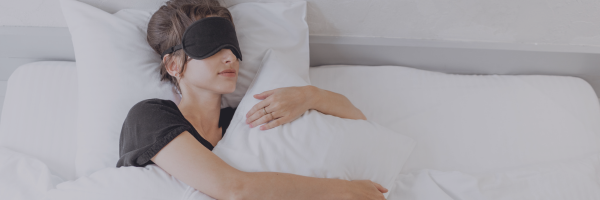
13 Practical Ways to Get Better Sleep Tonight
In our fast-paced world, where hustle culture is glorified, sleep often takes a back seat. However, the benefits of a good night’s sleep can’t be overstated, from enhancing mood and energy levels to boosting immunity. If you’re one of the many striving to get better sleep, you’re in the right place. Let’s explore 13 practical ways to improve your sleep quality:
1. Prioritize your sleep schedule
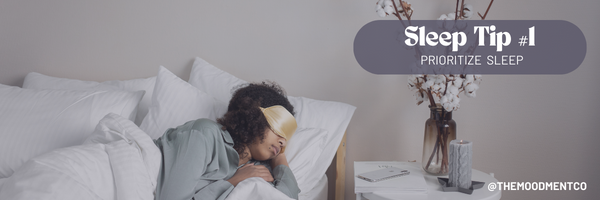
To get better sleep, keep a consistent sleep schedule. Doing this is crucial.
Aim to go to sleep and wake up at the same time daily, including weekends. This routine aids in synchronizing your body’s internal clock, facilitating easier sleep onset and maintenance throughout the night. Adhering to a set schedule reinforces your body’s sleep-wake cycle, promoting more restful and uninterrupted sleep.
2. Create a bedtime ritual
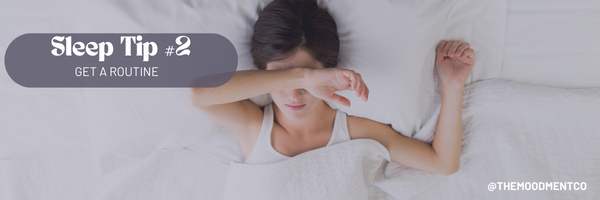
Establishing a bedtime ritual is key to signaling your body it’s time to wind down. This personalized routine could involve indulging in calming activities such as listening to soft music, practicing gentle yoga, or sipping on a cup of herbal tea. By engaging in these serene practices, you encourage a smooth transition into sleep.
Steer clear of activities that are overly stimulating or involve bright screens, as these can hinder your body’s natural progression toward rest. Crafting a peaceful pre-sleep ritual not only prepares your body but also nurtures your mind, setting the stage for a restful night.
3. Optimize your sleep environment
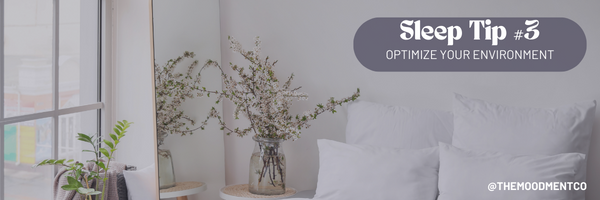
Transform your bedroom into a sleep-inducing oasis by paying attention to the ambiance.
First, a cooler room temperature can greatly help you get better sleep, so aim for a setting between 60 to 67 degrees Fahrenheit. Second, darkness is your ally in battling insomnia, so consider investing in blackout curtains or a sleep mask to block out unwanted light. Third, noise works as a sleep disruptor, so think about utilizing white noise machines or earplugs to maintain a serene atmosphere.
Lastly, the foundation of good sleep is a comfortable bed, so ensure your mattress and pillows cater to your comfort preferences, supporting a restful night’s sleep without causing discomfort or pain.
4. Monitor your diet
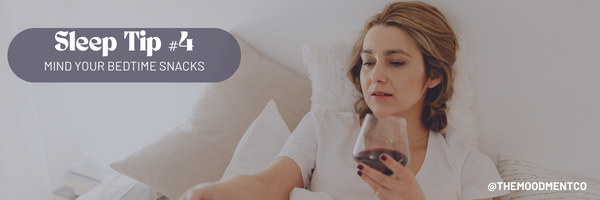
The foods and beverages you consume in the evening significantly impact your sleep quality.
Avoid consuming large or heavy meals too close to bedtime, as they can lead to discomfort and disrupt you from getting better sleep. Caffeine and nicotine are stimulants that should be avoided in the hours leading up to sleep, as they can make it difficult to fall asleep.
Although alcohol might initially make you feel drowsy, it can interfere with your sleep cycle as the night progresses, leading to less restful sleep.
5. Exercise regularly
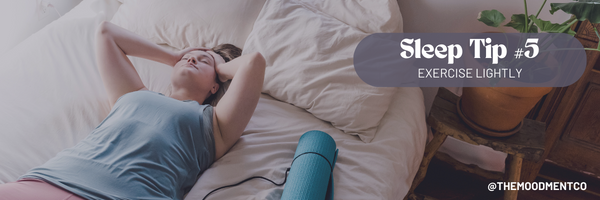
Incorporating regular physical activity into your routine can significantly help you get better sleep. Engaging in exercises not only helps expedite the onset of sleep but also deepens the sleep state, ensuring you wake up feeling rejuvenated.
However, it’s crucial, to time your workouts appropriately. Exercising stimulates the body, increasing alertness and heart rate, which can be counterproductive if done too close to bedtime. Aim to complete any moderate to vigorous physical activities a few hours before you plan to sleep. This timing allows your body to wind down naturally, setting the stage for a good night’s rest.
6. Limit screen time
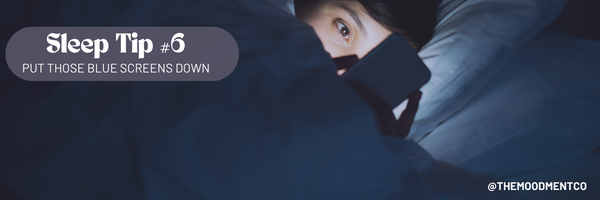
The pervasive glow from electronic devices is sabotaging your journey to dreamland. The blue light they emit mimics daylight, tricking your brain into thinking it’s still time to be awake, which can delay melatonin production and disrupt you from getting better sleep.
Embrace the habit of powering down all screens at least 60 minutes before bedtime. This crucial hour allows your mind to transition from the fast-paced digital world to a state more conducive to sleep. Consider replacing this screen time with a calming activity, such as reading a book or engaging in gentle stretching, to further prepare your body for rest.
7. Manage stress
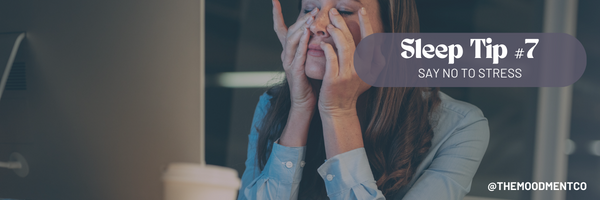
Stress is a common obstacle to achieving restful sleep, making it crucial to find effective ways to relax before bedtime.
Engaging in stress-reducing activities such as deep breathing exercises, meditation, or writing in a journal can significantly calm the mind. Techniques like progressive muscle relaxation can also be beneficial, guiding you through tensing and relaxing different muscle groups to release physical tension.
Additionally, practicing mindfulness can help divert your focus from day-to-day worries, facilitating a more peaceful state of mind conducive to sleep. Implementing these strategies can create a tranquil mental environment, paving the way for a smoother transition into slumber.
8. Consider cannabis
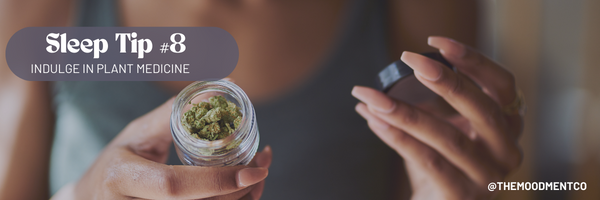
For individuals exploring natural sleep aids, cannabis is an incredible option to help you get better sleep. Particularly, Indica strains are known for their potential to soothe and induce sleep due to their relaxing effects. In fact, according to the Sleep Foundation, 80 percent of cannabis users have said that cannabis helps them sleep by relaxing their mind and body.
Cannabinoids, CBD, CBG and CBN, also work exceptionally well for restorative sleep. If you are looking to use plant medicine as a way to get better sleep, these products will help you get the rest you need.
9. Limit nap time
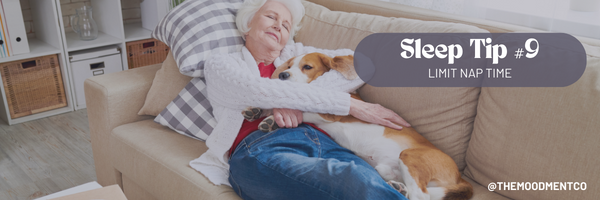
While brief naps provide a quick boost in alertness and performance, indulging in long or irregular napping during daytime hours may adversely impact your nighttime sleep quality.
For those who enjoy a daytime snooze, it’s advisable to keep naps short—ideally around 20 to 30 minutes—and to avoid napping too late in the day. This strategy helps to ensure that your daytime rest does not interfere with your ability to fall asleep or maintain deep sleep throughout the night, keeping your sleep schedule on track and your body’s internal clock in harmony to get better sleep.
10. Use natural light to your advantage
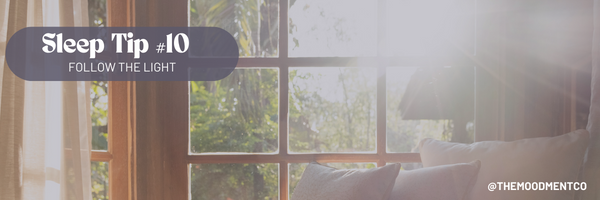
Leveraging the power of natural light plays a crucial role in aligning your body’s internal clock with the natural day-night cycle, thus enhancing sleep quality. So, make an effort to expose yourself to sunlight or bright light throughout the day, particularly in the morning (if you want to get better sleep). This exposure helps regulate your body’s production of melatonin, a hormone that signals your brain it’s time to sleep.
As evening approaches, minimizing exposure to bright lights can help signal to your body that the day is ending, preparing you for a restful night. Incorporating this strategy makes a significant difference in how quickly you fall asleep and the overall quality of your sleep.
11. Avoid looking at the clock
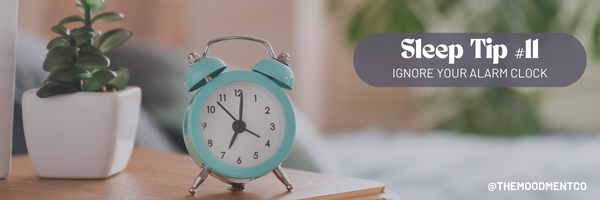
Constantly glancing at the clock during the night can increase stress and make it more challenging to fall asleep. This habit can create a cycle of anxiety about sleeplessness, which paradoxically keeps you more awake.
To combat this, position your clock where it’s not easily visible from your bed, preventing the temptation to check the time. Instead, focus on employing relaxation techniques such as deep breathing or visualization to gently ease your mind away from the ticking minutes and toward a restful slumber.
This small adjustment can help diminish sleep anxiety and foster a more conducive environment for falling asleep naturally.
12. Listen to soothing sounds
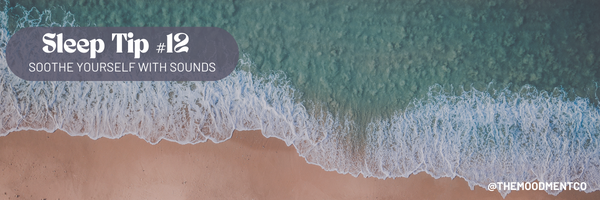
Incorporating auditory elements such as gentle melodies or nature sounds into your bedtime routine markedly improves your ability to fall asleep. The rhythmic nature of calming music or the serene sound of rain, for instance, can significantly relax the mind, easing the transition into deep sleep.
There are numerous applications and devices available designed to curate sleep-promoting soundscapes tailored to personal preferences. Experimenting with different sounds can help you discover the perfect audio backdrop to support your journey towards a more peaceful night’s rest.
Learn more about the benefits of sound healing to see how it can change your overall well-being.
13. Be mindful of your fluid intake
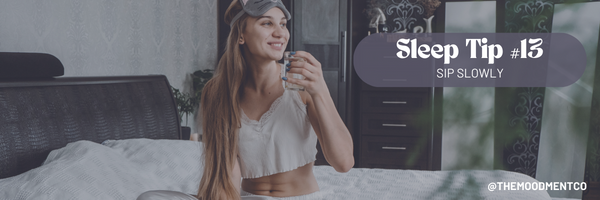
Last but not least, hydration is key to overall health, but timing is crucial when it comes to your sleep routine. Excessive fluid intake in the evening will interrupt your sleep with frequent bathroom visits, breaking the natural sleep cycle.
To avoid this, start limiting your liquid consumption a few hours before bedtime. This doesn’t mean you should go to bed dehydrated; just be more strategic about when and how much you drink. Making this small adjustment can help ensure that your sleep remains undisturbed.
Get better sleep tonight
See….with the help of these tips, you don’t have to do too much to set yourself up for better sleep success. So, if you want to get better sleep, you can start tonight.





